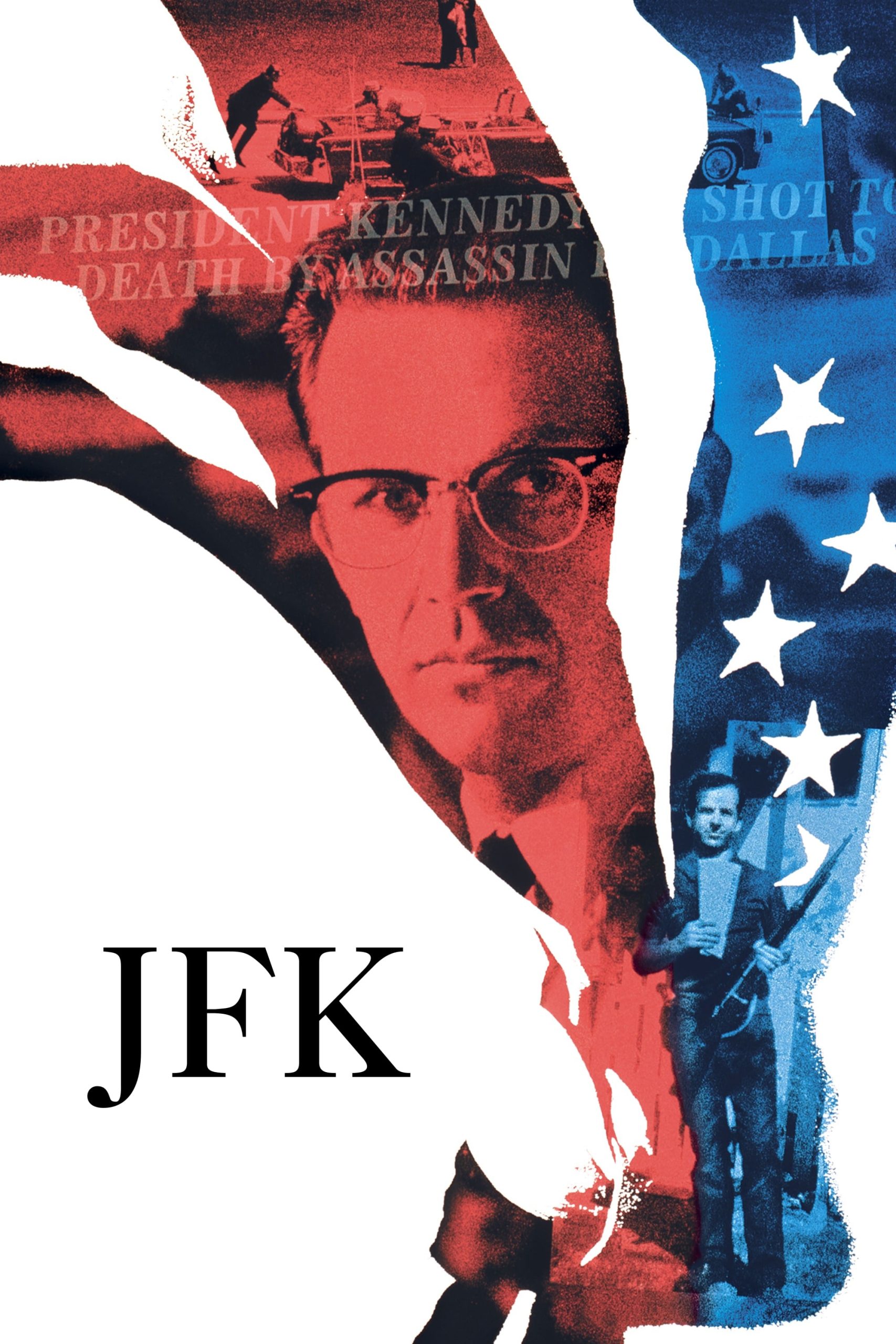
Follows the investigation into the assassination of President John F. Kennedy led by New Orleans district attorney Jim Garrison.
13 May JFK (1991)
Conspiracy of the Simple
I have my own theory about film. There is always an explicit acknowledgement that what you are seeing is a film, distinct from reality. Many films incorporate that recognition into their being; the simple ones are just films about films and filmmaking, but there are other sophisticated ways of self-reference.
It is my belief that there is a constant “distance” in these matters. So for example when we have a fantasy film like “Spy Kids” that has a film world within it as part of the story, the distance between that inner film world and the film we watch (the distance between the world of Floop and that of the Kids) is the same as the distance between the world of the kids and that of the us, the viewers. I think this is a matter of hardwiring in the mind.
So it is no surprise to me to see how Stone has handled the three realities of this project. We have the reality of that day, burned into the memories of those of us that were around. We have a different “reality“ that is abstracted from that by the hundreds of assassination investigators of all types. All of these, regardless of their credentials or position seem to have created not a reflection of reality but another reality altogether. Exactly where the line is between lies and wishful invention is lost forever for the thousands of people involved, from the hapless Arlan Spector to many of the witnesses.
Stone has taken those two realities and added a third, an abstraction from both the reality and the hundreds of already abstracted pseudorealities. Stone’s abstractions are completely cinematic: the nature of his Garrison has little to with the real guy and everything to do with Gregory Peck’s Atticus Finch, down to the unctuous scene with his boy on the porch swing.
And it has everything to do with rigid conventions of the film detective story, where “clues” have to be dramatically and visually exaggerated and narrative flow simplified.
That’s why Stone doesn’t mind at all changing things radically from Marr, Garrison and Prouty: here, Ferrie actually confesses (never happened); Shaw really is a spook (we know now he wasn’t); Bacon’s character is gay and doesn’t need hypnosis and drugs to “remember” a mention of the conspiracy. Stone doesn’t mind, because his world is cinematic and that is the only way it makes sense in cinematic terms. That he really believes this himself (as opposed to the makers of “Forgotten Silver”) is the really fascinating thing, but it makes sense because the world of film IS different.
And it does work as a film. Stone’s recognition of shifts in levels of abstraction is reflected in the variety of camera types, film media, camera positions and motions, narrative perspectives, even battling editing rhythms. It is a masterpiece of filmmaking, very much along the lines of “Citizen Kane” which dealt with the same issues of reality, invention and mixed cinematic narrative.
Depending on what else I find from that year, I may put it on my list of the two “must see for cineliteracy” films of that year.
Even though Stone really believes this stuff and takes it dead seriously, his intuitions still rule. So he selects one of the fakest actors available to play his narrator. To emphasise the fakiness, he uses flat lenses in his glasses. This is one of the biggest no-no’s in all filmdom. Every novice knows you do not do this.
Real glasses have curved surfaces in their lenses, fake ones are flat. Flat glasses have the disadvantage of reflecting the lights, crew and camera of the filmmaking process, something that Costner’s face does hundreds of times. To a moviewatcher, this makes that character more like the figures in the courtroom model of the plaza than like us.
In fact, the only realistic acting in the whole project is by Lolita Davidovich. Her piece is great.
This film is bound to become famous again when Mel Gibson releases his similar fiction on Jesus, also leveraging conspiracy, also driven by the laws of cinematic narrative in the face of truth if need be.
Posted in 2003
Ted’s Evaluation — 3 of 3: Worth watching.


No Comments